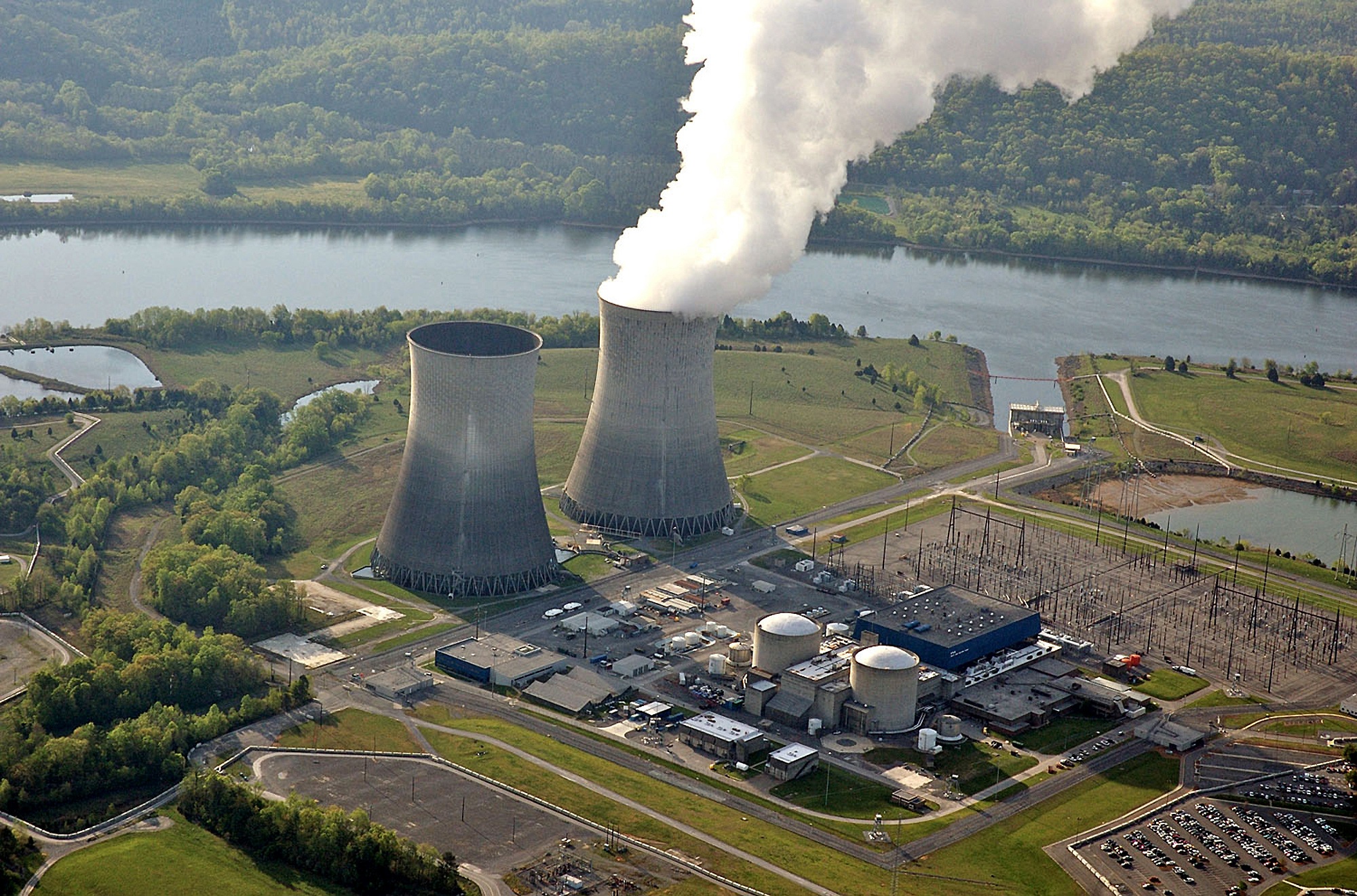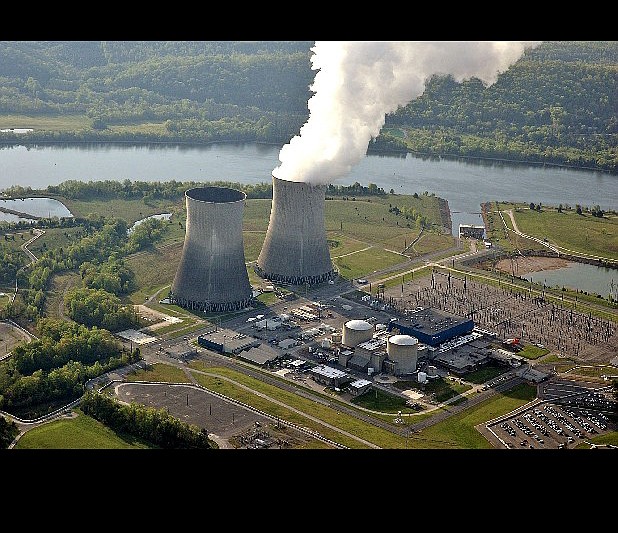Openness urged in TVA planning
Friday, January 1, 1904
 In this April 2007 file photo provided by the Tennessee Valley Authority, steam rises from the cooling tower of the single operating reactor at the Watts Bar Nuclear Plant in Spring City, Tenn. TVA soon will begin developing a new, 30-year plan for power generation that will rely less on coal and more on nuclear power.
In this April 2007 file photo provided by the Tennessee Valley Authority, steam rises from the cooling tower of the single operating reactor at the Watts Bar Nuclear Plant in Spring City, Tenn. TVA soon will begin developing a new, 30-year plan for power generation that will rely less on coal and more on nuclear power.The Tennessee Valley Authority in coming months will start building a new 30-year power generation plan - one that puts more emphasis on nuclear power and less on coal - and environmental groups are urging openness at the start.
Stephen Smith, executive director of the Southern Alliance for Clean Energy, said the federal utility made great strides toward transparency in its 2011 Integrated Resource Planning process, and he hopes that trend continues.
"It is very important that TVA makes this process as open and transparent as possible and makes sure they have good involvement from stakeholders," Smith said Friday.
In 2011, some documents given to an advisory panel of non-TVA environmentalists, academics and scientists were not open records, and panel members were asked to sign confidentiality agreements.
TVA spokesman Duncan Mansfield said Friday the 2015 planning session is expected to begin in the fall and likely will last 18 months. Members of the advisory panel have not been selected yet, he said.
Generally, the agency expects to back off coal and step up nuclear production. But nuclear increases will depend on whether regulators approve plans for new nuclear reactors for the Watts Bar and Bellefonte plants.
Other expected power demands will be met mostly by increased efficiency, Mansfield said.
"Right now, coal makes up about 40 percent of our power generation. That will come down to about one-third, and nuclear will come up to about 40 percent [by 2027]," Mansfield said.
The remaining 30 percent will come mainly from hydroelectric dams, natural gas, efficiency gains and -- to a much lesser degree -- solar and wind energy, Mansfield said.
More voices
Smith said the clean energy alliance, which sat on the 2011 advisory panel, understands market changes and is willing to negotiate some points.
"We have some things that we would like to see, and then we have some things that we would like to keep our minds open about," Smith said.
If the process is done properly, Smith said TVA "will try to get the lowest-cost and lowest-risk set of options."
One thing Smith and TVA agree about is that coal is on the way out.
"We believe that number [of coal-burning plants] is going to continue to decline. And we think that is the right move economically and environmentally," Smith said.
Smith is almost in line with TVA's projected generation mix. But he says TVA's nuclear aspirations are a bit lofty, and coal and natural gas are in the same fossil-fuel boat that is sinking.
Gas does burn more cleanly than coal, Smith said. But it's still a fossil fuel.
According to TVA documents, natural gas produces about half the sulfur and nitrogen emissions as a fully controlled coal-burning plant.
Smith expects the market will rule nuclear expansion out.
"We think you will see TVA finally admit that the Bellefonte nuclear plant makes no sense," Smith said. "And I don't believe the small modular reactors are ever going to make financial sense, but I think TVA will try to bring them into the discussion this time and try to make them make sense."
Smith said he welcomes the conversation about small modular reactors but is interested in seeing the numbers.
Scott Banbury, the Sierra Club's conservation chairman for Tennessee, said coal emissions are enemy No. 1.
"We think they need to be looking at greater reductions in coal, and Sierra Club is going to do everything we can to force them to make that happen," Banbury said.
Banbury said the club will put "massive legal pressure" on TVA over coal emission production.
He also called TVA's nuclear plans "pie in the sky," given current legal hoops ahead of the Bellefonte and Watts Bar plants.
"We are going to push harder for renewables and energy efficiency," Banbury said. "TVA should be making much greater commitments to the purchase of wind power that will be coming into the state in coming years."
Mansfield said renewable energy sources are good, but they are not readily available.
"We don't have any more room for hydroelectric dams in the Tennessee Valley," Mansfield said. "Renewables are very expensive. To get people to build renewables, you have to offer incentives."
Contact staff writer Louie Brogdon at lbrogdon@times freepress.com or 423-757-6481. Follow him on Twitter at @glbrogdoniv.
